In Windows 11 or Windows 10, you might have seen a program called “Turbo Virtual Machine Executable” in Task Manager and wondered what it is. If you’re curious about what it does, or worried it could be harmful, this guide will clear up these questions for you. We’ll talk about what it is, why it’s used, how it affects your computer’s resources, and its role with popular software like Photoshop and FL Studio.
Also see: How to Scan an .exe File for Viruses to Check If It’s Safe
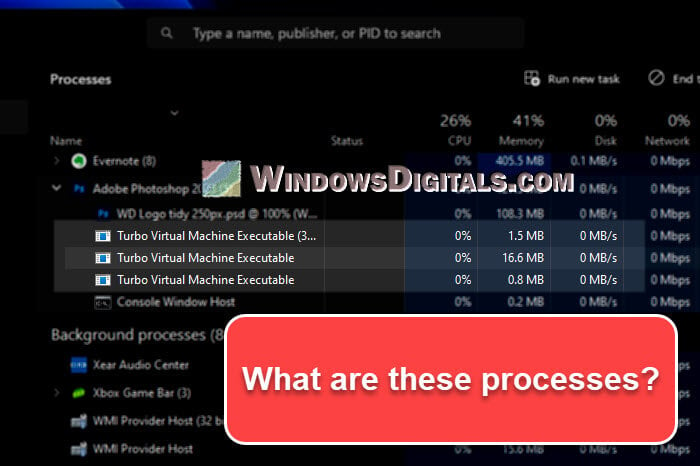
Page Contents
What is Turbo Virtual Machine Executable?
Turbo Virtual Machine Executable is a process you’ll see in Task Manager on Windows 11 or 10. It’s linked to Turbo, a platform that uses containers to package, share, and run apps in their own special space.
This process is the main file for the Turbo Virtual Machine, an important part of Turbo’s platform. It makes sure the packaged software runs well without messing up other programs or your device.
Useful tip: How to Know Which Process is Using a File in Windows 11
What does Turbo Virtual Machine Executable have to do with Photoshop and FL Studio?
For software like Photoshop and FL Studio, wrapped up in the Turbo platform, the Turbo Virtual Machine Executable is key to making them work.
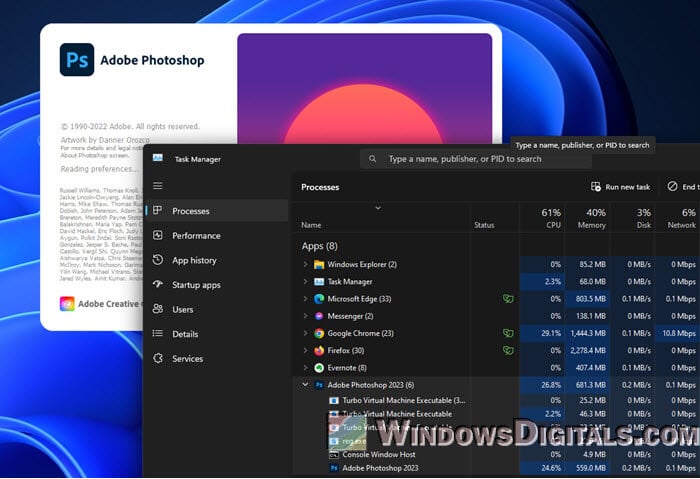
Basically, these programs are “containerized” with Turbo. This means the app and everything it needs, like libraries and settings, are packed into one file. The Turbo Virtual Machine Executable runs these packed apps, giving them a separate space to work in.
This way, the apps can work on different Windows systems and versions, carrying everything they need with them. It also stops apps from clashing over different needs.
Linked issue: What is “Adobe IPC Broker” and How to Fix its Errors
Turbo Virtual Machine Executable causes high CPU usage
Like any program, the Turbo Virtual Machine Executable uses your computer’s CPU. If you see it using a lot of CPU, it’s usually because a Turbo app needs a lot of processing power.
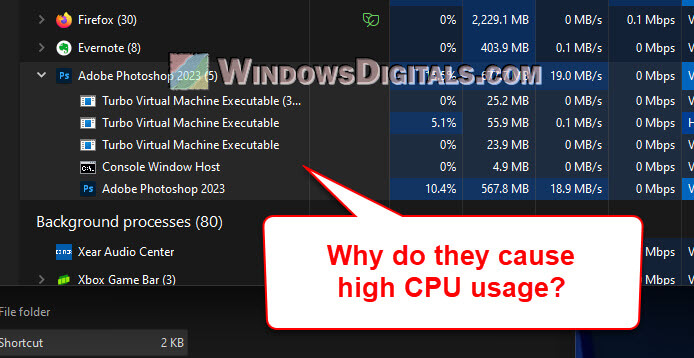
This could be just for a while, like when starting a big app like Photoshop. But, if the high CPU usage is consistent, it might be time to take a closer look. You can stop the process in Task Manager to see if things improve. If not, there might be an issue with the Turbo app, and you should try to fix the app itself.
Handy guide: How to Limit CPU Usage of a Process in Windows 11
Turbo Virtual Machine Executable is not responding
Sometimes, you might get a message that the Turbo Virtual Machine Executable isn’t responding. This could be for many reasons, like not enough system resources, bugs, or not working well with other software.
To fix it, first try ending the task in Task Manager. If the issue stays, consider reinstalling the Turbo app. Make sure you save any important data first.
Related resource: Force Close Program in Windows 11 without Task Manager
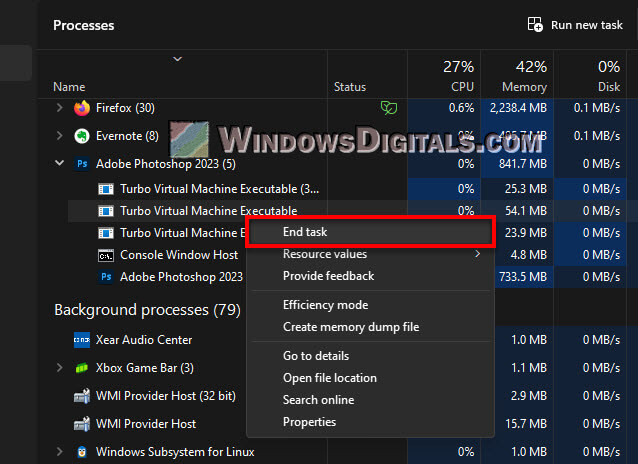
Is Turbo Virtual Machine Executable a virus or malware?
No, the Turbo Virtual Machine Executable isn’t actually a virus or malware. It’s a real program for the Turbo platform.
However, it’s still wise to always be careful. Bad software can pretend to be something it’s not. So, if something seems off, like using too much CPU for no reason, it’s a good idea to check the file with a proper antivirus software, like Windows Defender, to make sure it’s safe.
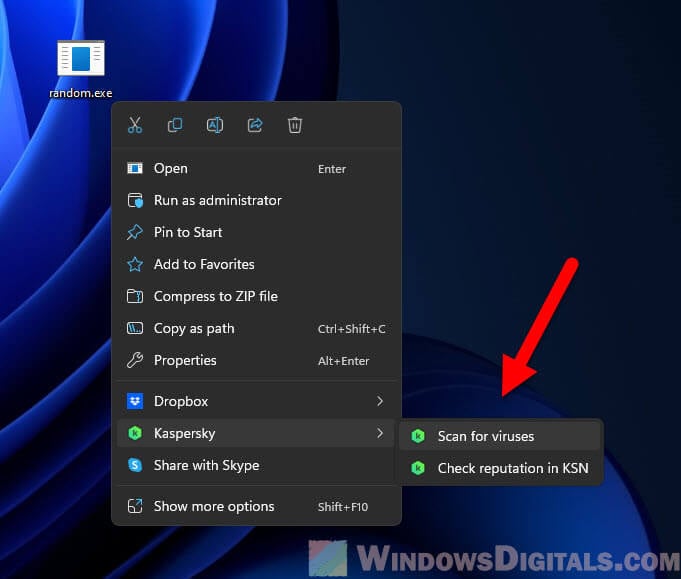
What is the connection between Turbo Virtual Machine Executable and stubexe?
Looking closer at the Turbo Virtual Machine Executable, you might find a folder called stubexe. This folder is important in the Turbo ecosystem.
The stubexe folder has small programs, or “stubs”, for your Turbo apps. These “stubs” start the app, calling the Turbo Virtual Machine Executable to set up the Turbo environment. Then, the Turbo runs the app in its own environment.
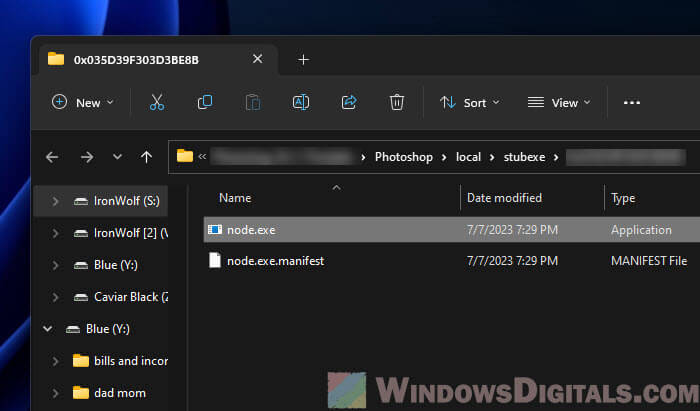
Stubs let each app have its own setup and needs while still using Turbo to run. This keeps apps from getting in each other’s way and works on different Windows setups.
Some final words
In the end, the Turbo Virtual Machine Executable is a real and important part of the Turbo platform. It lets apps like Photoshop and FL Studio run in their own environments without conflicting with other processes or your computer.
It might seem like it’s eating up a lot of your computer’s resources (such as CPU and memory) or not behaving properly sometimes, but these problems usually don’t last long and are connected to how much resources the apps need to use. It’s not going to harm your computer, but it’s always a good idea to keep an eye out.
If you’re feeling a bit lost or have more questions, looking into community forums like Reddit can be very helpful. Over there, you might find loads of different opinions and advice that could clear up your doubts about the process.






